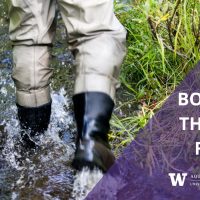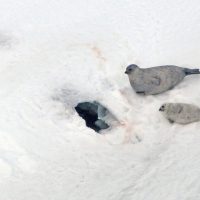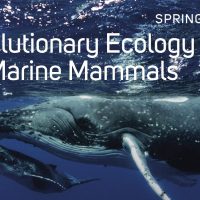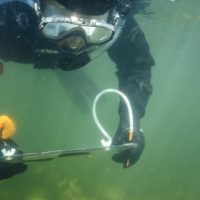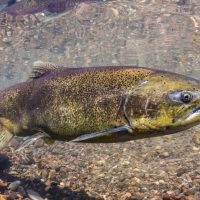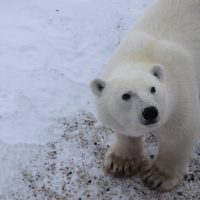Filter Results
Undergraduate Mentorship Guide for Community-Building released
We are excited to announce that the Equity & Inclusion Committee has released the “Undergraduate Mentorship Guide for Community-Building”, which is now available on the SAFS DEI webpage! The guide is designed to help undergraduate students and their mentors navigate the mentoring relationship and achieve success.
This mentorship guide is intended primarily for undergraduate students (mentees) and for graduate students, postdocs, and staff, (who may serve as mentors) at SAFS.
Join us for the SAFS Cafe every Friday this Spring
Join us every Friday this Spring for the SAFS Cafe.
The SAFS faculty are pleased to host you for hot drinks and snacks, and a chance to take a quick break from your day to catch up with colleagues.
When: Fridays at 10am
Where: FISH second floor kitchen and patio
What should I bring? Bring your coffee or tea and stop by for a snack and a chat!
Burning questions: join us for the SAFS 2023 All Hands Meeting
Join your SAFS Community for a special All Hands Meeting where you can ask all of your burning questions!
Want to know more about the life of a post doc? Interested in the graduate program process? Always wanted to ask a faculty member what their day looks like? Wondering what are some of the important topics impacting our school? Want to know how SAFS is working to be more inclusive?
Consider giving on Husky Giving Day, 6 April
The SAFS Boots in the Mud fund is a special opportunity to provide our students with materials and equipment needed for immersive learning opportunities.
Read moreOn the ice and from the air: combining Indigenous Knowledge and multidisciplinary science to investigate Alaska’s ringed seals
In the Arctic, where temperatures are rising at nearly four times the global average, a collaborative effort, combining Indigenous Knowledge with multidisciplinary science has been used to investigate the denning habitat selection of Alaska’s ringed seals.
During the Ikaaġvik Sikukun (Iñupiaq for “Ice Bridges”) project, researchers from the University of Washington School of Aquatic and Fishery Sciences (SAFS), Lamont-Doherty Earth Observatory of Columbia University, University of Alaska Fairbanks, the Native Village of Kotzebue, NOAA, and Farthest North Films collaborated with an Elder Advisory Council of Iñupiaq Qikiqtaġruŋmiut Elders with extensive personal history of subsistence hunting and experience on sea ice.
FINS for the win!
Ever wondered how money raised from the sale of FINS merchandise gets used? Look no further—here are some recent stories from SAFS students who have directly benefited from funds raised by the Fisheries Interdisciplinary Network of Students (FINS), housed at the UW School of Aquatic and Fishery Sciences.
One of the best ways for graduate students to present their research to an extensive, global audience and interact with national and international colleagues is to attend conferences relevant to their field of study.
Explore the evolutionary ecology of marine mammals in new class
In a new class taught by Dr. Amy Van Cise, students can dive into the world of evolutionary ecology of marine mammals.
FISH 497B MWF 12:30–1:20 pm
Explore the diverse and integral ecological roles played by marine mammals in our global aquatic ecosystems, from coastal and riverine to open ocean and deep ocean environments.
Examine the major evolutionary adaptations driving the radiation of mammals into the aquatic environment and into a diverse array of ecological niches.
What lies beneath the waves at Seattle’s waterfront?
As part of the UW Wetland Ecosystem Team’s Seattle Seawall Fish Monitoring Program, an underwater video from 2022 has been released.
Documenting what lies beneath in Year 5 of the project in 2022, the video is compiled from snorkel and SCUBA surveys to monitor effectiveness of the Seattle seawall rebuild for improving habitat for juvenile salmon and other nearshore fishes.
For more information visit http://depts.washington.edu/wetlab/
SAFS Professor joins Radio Tacoma’s Climate Talks
As part of the Climate Talk series by Radio Tacoma, Dr. Mark Scheuerell from SAFS joined to speak about PNW salmon populations and what they tell us about the state of our environment. Click the link and scroll down to listen to the episode.
Read moreSkating on thin ice: polar bears in a warming future
On International Polar Bear Day, the plight of these apex predators could not be more evident, as a result of a myriad of threats to their existence due to climate change.
As their name suggests, polar bears live in the Arctic polar regions of Canada, Greenland, Russia and Alaska. Kristin Laidre, a UW scientist at SAFS, shares that polar bears require ice for almost every aspect of their existence, including feeding, moving, breeding and in some places, maternity denning.



